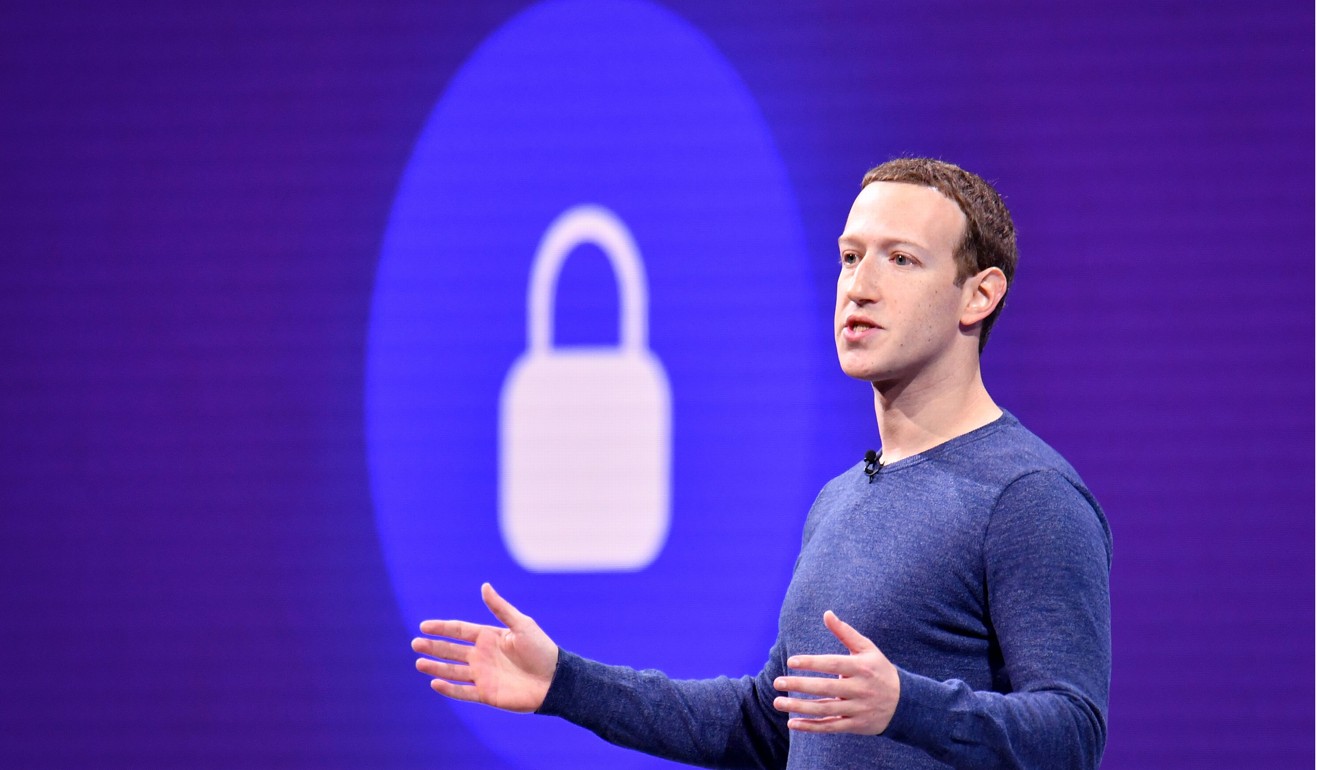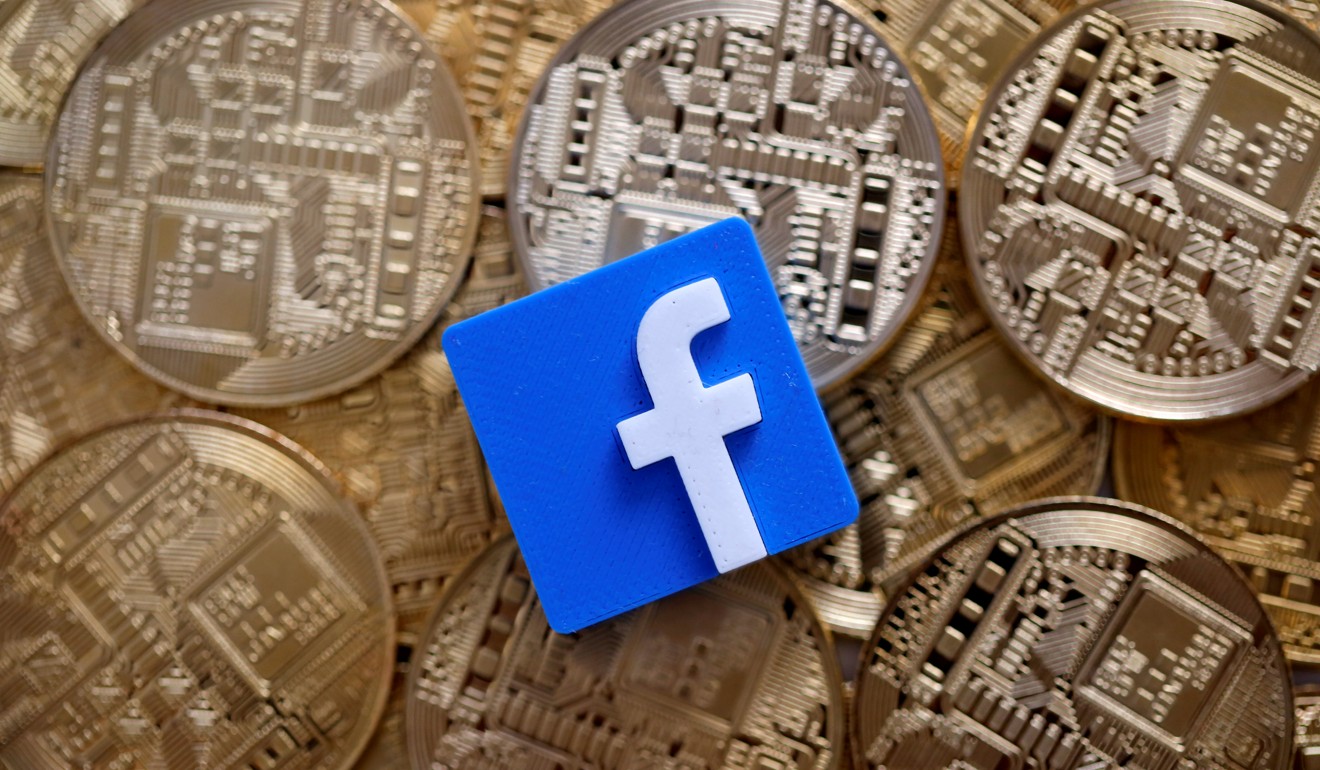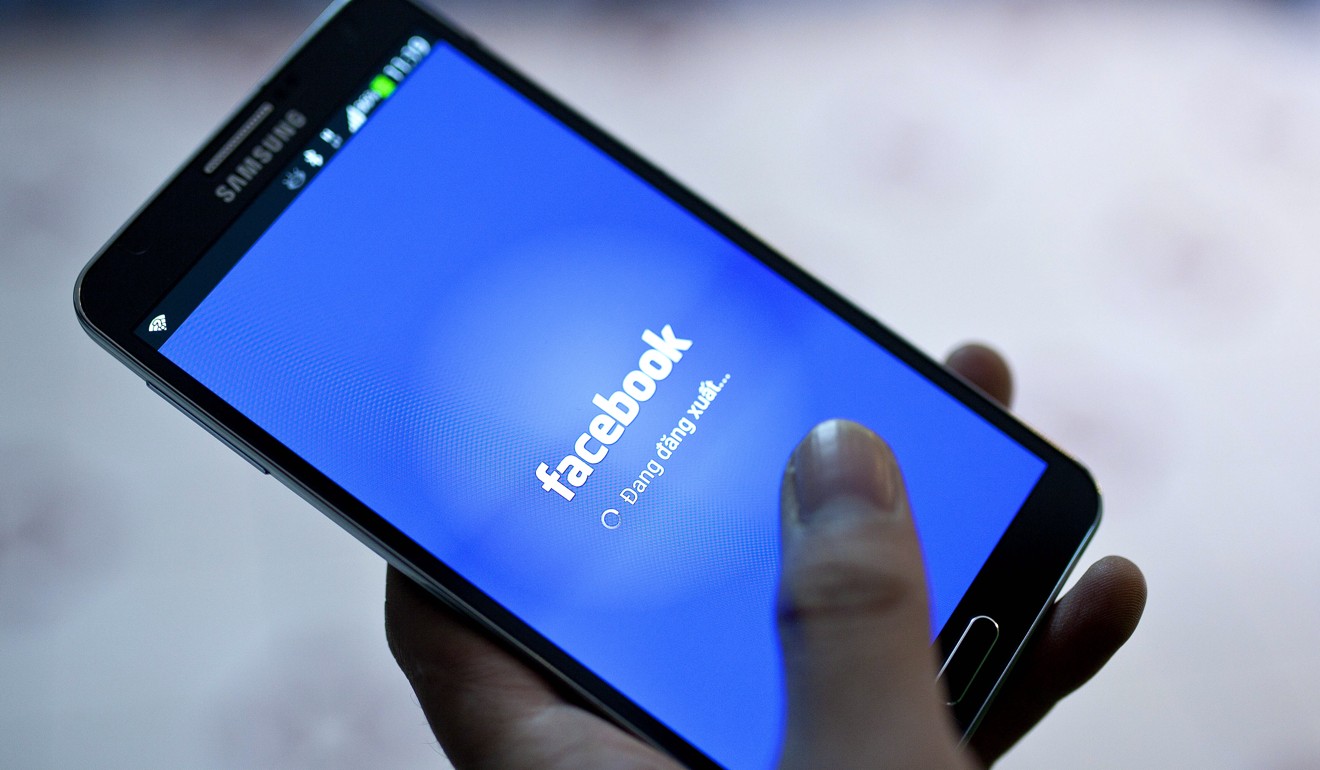Why Facebook’s answer to bitcoin and WeChat Pay, libra, is doomed to fail | South China Morning Post
(scmp.com)
“Move fast and break things. Unless you are breaking stuff, you are not moving fast enough,” Facebook founder Mark Zuckerberg once said.
Today Facebook is racing as fast as it can to break the global financial architecture, before the world’s big governments can shatter its existing business model.It will lose the race.
Last week the US social media giant announced plans to launch a new “global currency” called libra. The idea is to use a smartphone app to create an international payments system for a new electronic currency, similar to bitcoin, to rival and even displace existing national currencies.
You can see why “Zuck” is going down this path. A third of the world’s population is now signed up to Facebook’s social media and messaging services. This has allowed Facebook to exploit users’ data to sell targeted advertising on a vast scale.

Facebook CEO Mark Zuckerberg is looking for new revenue streams. Photo: AFP
But the world’s governments are rapidly closing in. Just last week US President Donald Trump castigated European competition commissioner (and likely future EU chief bureaucrat) Margrethe Vestage for targeting Facebook. “She’s suing all our companies,” the US president complained. “We should be suing … Facebook.”
With its existing business model under threat, Facebook is looking for new revenue streams. And for inspiration it is looking at China.
Specifically, it is looking at Tencent, and the Chinese gaming company’s WeChat
Pay payments system.
But while WeChat Pay allows users to send each other payments in yuan, Facebook is aiming to go a big step further, denominating its payments in a tailor-made electronic cryptocurrency called libra.
The name is unfortunate. Libra is latin for “pound”. In the last four years, the British pound has lost 25 per cent of its value against the US dollar. The Egyptian pound is down more than 50 per cent.
Here lies a problem. Facebook hopes to avoid the wild swings in other cryptocurrencies like bitcoin, and to build trust in its own crypto, by backing libra with holdings of assets in major currencies like the US dollar.
 Facebook hopes libra can avoid the wild swings of other cryptocurrencies like bitcoin. Photo: Reuters
Facebook hopes libra can avoid the wild swings of other cryptocurrencies like bitcoin. Photo: Reuters
In this sense, libra will resemble the Hong Kong dollar, whose monetary base is fully backed by US dollar-denominated assets.
But while the Hong Kong Kong dollar is pegged to the US dollar alone, libra will be pegged to a basket of major tradeable currencies, presumably including the euro, yen and pound as well as the US dollar.
This means the value of libra will fluctuate against other major currencies. For ordinary consumers looking to pay for stuff in libra, the result will be that the libra price of goods and services – for example, a cup of coffee – will vary from day to day.
This alone will likely be enough to kill the new project. For libra to work, companies would have to begin determining the prices of their products and services in libra. And, to avoid volatility between revenues and expenses, they would have to pay their staff in libra.
But neither companies nor workers would want paychecks in libra. Both would still have to pay their taxes in national currencies, which would mean that they if they used libra they would immediately begin to suffer from exchange rate risk.
The value of their libra income could fall relative to their tax liabilities.In short, no one would want to use libra, because the moment they did, they would open up a gaping hole in their accounts.

Governments will have reason to lean heavily against Facebook’s new currency. Photo: EPA
Imagine as a US investor you bought US$10,000 worth of libra, and by great good fortune the value of the other currencies in the basket rose relative to the US dollar, the value of your libras would increase, say to US$12,000.
Now imagine you wanted to buy a speedboat. You would have to sell your libras for US dollars. As far as the US revenue service is concerned you would have to pay a capital-gains tax on the increase on the US dollar value of your libras.
This suggests the real problem with libra. Governments might talk up the merits of competition, but in reality they cannot tolerate competitors.
Libra might be a good idea, but not enough people will use it, because the inertia attached to existing national currencies is too great. If you have liabilities in US dollars, you will target revenues in US dollars to pay your creditors. You don’t want revenues in libra.
Ultimately, libra is not the competitor to central banks that boosters claim. In reality it poses no threat at all to established payments systems. Governments will lean heavily against it as a potential competitor.
And consumer spenders will have little incentive to take it up in preference to their existing choices. Zuck will have to try harder. ■
Tom Holland is a former SCMP staff member who has been writing about Asian affairs for more than 25 years
Today Facebook is racing as fast as it can to break the global financial architecture, before the world’s big governments can shatter its existing business model.It will lose the race.
Last week the US social media giant announced plans to launch a new “global currency” called libra. The idea is to use a smartphone app to create an international payments system for a new electronic currency, similar to bitcoin, to rival and even displace existing national currencies.
You can see why “Zuck” is going down this path. A third of the world’s population is now signed up to Facebook’s social media and messaging services. This has allowed Facebook to exploit users’ data to sell targeted advertising on a vast scale.

Facebook CEO Mark Zuckerberg is looking for new revenue streams. Photo: AFP
But the world’s governments are rapidly closing in. Just last week US President Donald Trump castigated European competition commissioner (and likely future EU chief bureaucrat) Margrethe Vestage for targeting Facebook. “She’s suing all our companies,” the US president complained. “We should be suing … Facebook.”
With its existing business model under threat, Facebook is looking for new revenue streams. And for inspiration it is looking at China.
Specifically, it is looking at Tencent, and the Chinese gaming company’s WeChat
Pay payments system.
But while WeChat Pay allows users to send each other payments in yuan, Facebook is aiming to go a big step further, denominating its payments in a tailor-made electronic cryptocurrency called libra.
The name is unfortunate. Libra is latin for “pound”. In the last four years, the British pound has lost 25 per cent of its value against the US dollar. The Egyptian pound is down more than 50 per cent.
Here lies a problem. Facebook hopes to avoid the wild swings in other cryptocurrencies like bitcoin, and to build trust in its own crypto, by backing libra with holdings of assets in major currencies like the US dollar.
 Facebook hopes libra can avoid the wild swings of other cryptocurrencies like bitcoin. Photo: Reuters
Facebook hopes libra can avoid the wild swings of other cryptocurrencies like bitcoin. Photo: ReutersIn this sense, libra will resemble the Hong Kong dollar, whose monetary base is fully backed by US dollar-denominated assets.
But while the Hong Kong Kong dollar is pegged to the US dollar alone, libra will be pegged to a basket of major tradeable currencies, presumably including the euro, yen and pound as well as the US dollar.
This means the value of libra will fluctuate against other major currencies. For ordinary consumers looking to pay for stuff in libra, the result will be that the libra price of goods and services – for example, a cup of coffee – will vary from day to day.
This alone will likely be enough to kill the new project. For libra to work, companies would have to begin determining the prices of their products and services in libra. And, to avoid volatility between revenues and expenses, they would have to pay their staff in libra.
But neither companies nor workers would want paychecks in libra. Both would still have to pay their taxes in national currencies, which would mean that they if they used libra they would immediately begin to suffer from exchange rate risk.
The value of their libra income could fall relative to their tax liabilities.In short, no one would want to use libra, because the moment they did, they would open up a gaping hole in their accounts.

Governments will have reason to lean heavily against Facebook’s new currency. Photo: EPA
Imagine as a US investor you bought US$10,000 worth of libra, and by great good fortune the value of the other currencies in the basket rose relative to the US dollar, the value of your libras would increase, say to US$12,000.
Now imagine you wanted to buy a speedboat. You would have to sell your libras for US dollars. As far as the US revenue service is concerned you would have to pay a capital-gains tax on the increase on the US dollar value of your libras.
This suggests the real problem with libra. Governments might talk up the merits of competition, but in reality they cannot tolerate competitors.
Libra might be a good idea, but not enough people will use it, because the inertia attached to existing national currencies is too great. If you have liabilities in US dollars, you will target revenues in US dollars to pay your creditors. You don’t want revenues in libra.
Ultimately, libra is not the competitor to central banks that boosters claim. In reality it poses no threat at all to established payments systems. Governments will lean heavily against it as a potential competitor.
And consumer spenders will have little incentive to take it up in preference to their existing choices. Zuck will have to try harder. ■
Tom Holland is a former SCMP staff member who has been writing about Asian affairs for more than 25 years
-
- 1
Francisco Gimeno - BC Analyst Well reasoned arguments on the problems Libra is facing as it is now in its White Paper. FB is trying to enter in the race, but we don't really see it being successful on the long term without huge changes in the ways is presented now. What do you think?


